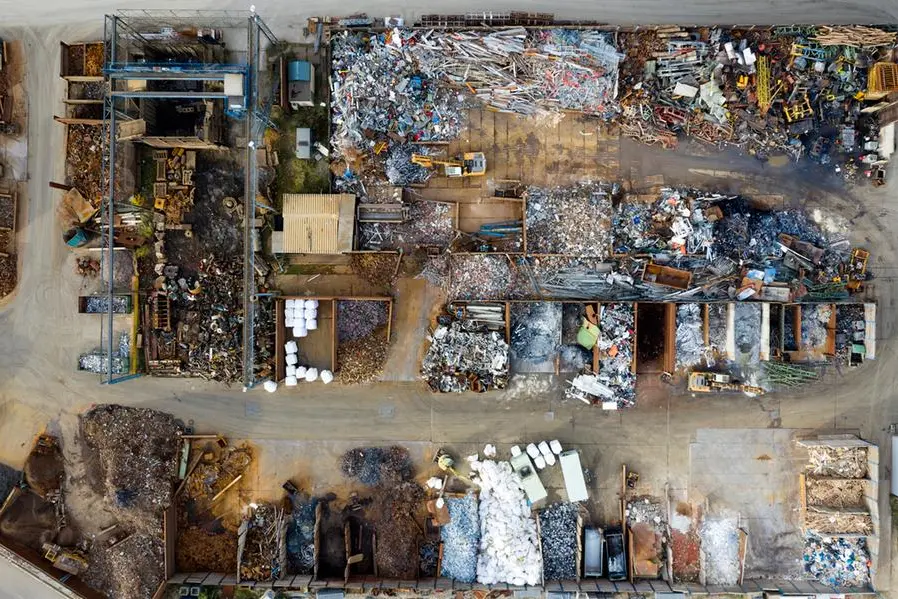PHOTO
Tunis - In the middle of a vast area of approximately 6,000 square meters in the municipality of Ezzahra, which is located in the southern suburbs of Tunis, crushers, loaders, and mobile cranes are at work at Tunisia and Africa's first and only demolition and construction waste recycling and recovery unit.
Founded in 2019 through a public-private partnership, the company "REG - Respect Environment Group Tunisia," which operates within a green and circular economy approach, now recycles construction site waste, transforms it into reusable materials for road infrastructure, and sells these materials at 30 to 40% lower prices than quarry products, its director Hamza Ben Ali said.
The company is paving the way for a circular economy model with several benefits, mainly reducing construction costs by reusing recycled materials, limiting the extraction of non-renewable raw materials, and cutting pollution by decreasing landfills.
The company, with a crushing capacity of 1,000 tonnes per day, is now ready, after its experience with the municipality of Ezzahra, to share its expertise with other municipalities in Tunisia and develop mobile (on-site) crushing and recycling services. It even has a real potential to expand internationally.
"We have already set up 'REG Middle East' in Dubai. We are seeking to foster partnerships in Italy and Egypt and promote innovative and sustainable solutions in order to overcome current environmental challenges," REG Director Hamza Ben Ali told Tunisian and Maghreb media visiting the site as part of a training workshop organized in Tunis by the African journalists network "Afrique 21."
The company is currently operating successfully in the ecological and efficient management of construction and demolition waste, with partners in France, Lebanon, Tunisia, Africa, and the Middle East.
Once crushed by on-site crushers, the demolition waste is transformed into pre-construction products. They will be used for base layers in roads, roadbed bodies, and as asphalt material. A section of National Road No. 3 has been paved with recycled products from the company as part of an experiment.
"In the second phase, we will work on prefabricated products to be used in road curbs, gutters, and sidewalks. We have ordered a special machine for this operation," said the company's head.
He added that "there is still some reluctance to reuse recycled products, making it necessary to change mindsets and persistently raise awareness."
The company, which provides 10 direct jobs and around 300 indirect jobs, is not currently operating at full production capacity but works on demand, mainly serving construction contractors.
In the long run, the company is focusing on innovation to carry out demolition and recycling on-site using a mobile crusher, thus reducing transportation costs.
"We are also working on a digital application as part of the Re-MED project to alert people about construction waste. This application uses artificial intelligence to identify the types of waste reported and ensure it is demolition waste that can be recycled."
In Tunisia, demolition and construction waste is a significant environmental nuisance affecting quality of life in general. The amount of waste released into urban and rural ecosystems is estimated to be around 13 million tonnes. 70% of it is thrown in big coastal cities of Tunis, Sousse, and Sfax, according to a study conducted in 2019.
Recycling and recovering waste will reduce pollution and help end the proliferation of illegal landfills.
© Tap 2022 Provided by SyndiGate Media Inc. (Syndigate.info).





















